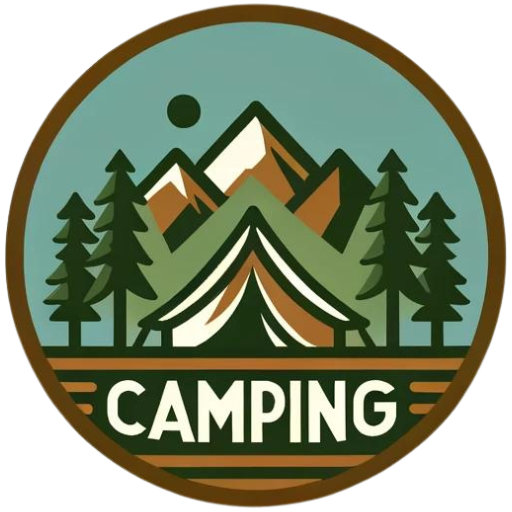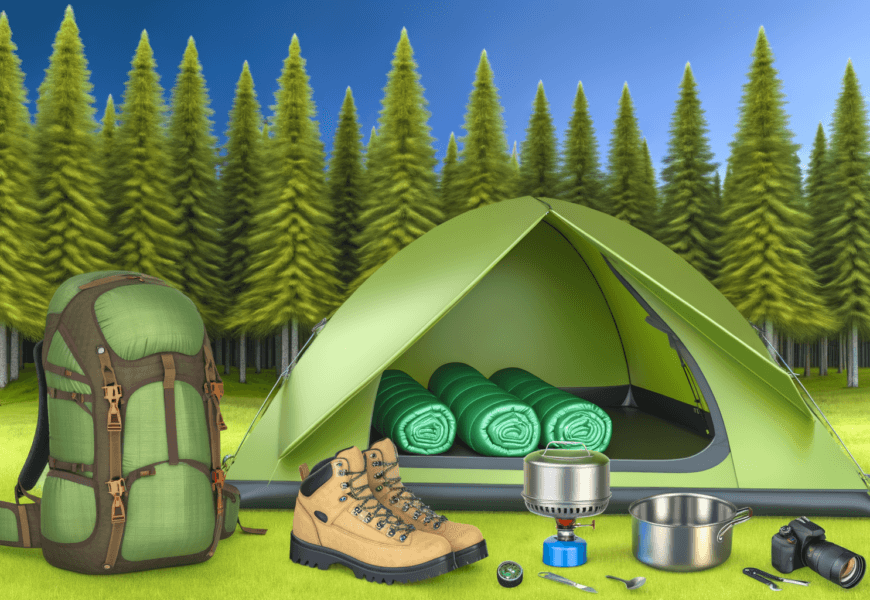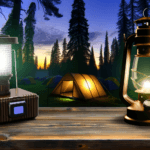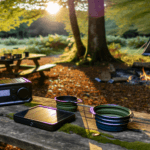Essential Gear for Beginner Campers
Embarking on your first camping adventure can be both exhilarating and daunting. The idea of immersing yourself in nature, disconnecting from the digital world, and enjoying the simplicity of outdoor living is undeniably appealing. However, to ensure a successful trip, you must be equipped with the right camping gear. This comprehensive guide will walk you through the essential camping gear for beginner campers, helping you make informed decisions to enhance your outdoor experience.
Introduction to Camping Gear
When you think about camping, what comes to mind? Perhaps the crackling of a campfire, the rustle of leaves underfoot, or the star-studded sky above. While these experiences are the essence of camping, they are made possible by the tools and equipment you bring along. For beginners, the array of camping gear available can be overwhelming. From tents to cooking utensils, each piece plays a vital role in ensuring comfort, safety, and enjoyment. In this guide, we will discuss the fundamental camping gear every beginner should consider, why each item is important, and tips for choosing the best options.
1. Shelter: Your Home Away from Home
Tents
A tent is arguably the most crucial piece of camping gear. It serves as your primary shelter, providing protection from the elements and a private space for rest. When choosing a tent, consider the following:
-
Size and Capacity: Determine how many people will be sleeping in the tent and if you need extra space for gear storage. A two-person tent is suitable for solo campers or couples, while families might require a larger model.
-
Seasonality: Tents are often categorized by seasons. A three-season tent is ideal for spring, summer, and fall, offering a balance of ventilation and weather resistance. Four-season tents are designed for harsh winter conditions but may lack ventilation in warmer climates.
-
Setup and Weight: As a beginner, you might prefer a tent that is easy to set up. Look for tents with color-coded poles or a pop-up design. Additionally, consider the weight if you plan to hike to your campsite.
Tarps and Ground Cloths
A tarp can be a versatile piece of camping gear, used as an additional layer of protection over your tent or as a makeshift shelter. Ground cloths, or footprints, protect your tent's base from moisture and sharp objects. These accessories are relatively inexpensive and greatly enhance the lifespan and functionality of your primary shelter.
2. Sleeping Gear: Comfort in the Wilderness
Sleeping Bags
A good night's sleep is essential for an enjoyable camping trip, making a sleeping bag a critical component of your camping gear. Here’s what to consider:
-
Temperature Rating: Choose a sleeping bag with a temperature rating suitable for the conditions you'll be camping in. Bags are rated by the lowest temperature they are designed to handle, so select one that matches the expected weather.
-
Shape and Size: Mummy-shaped sleeping bags offer better insulation and are lighter, making them ideal for cold weather and backpacking. Rectangular bags provide more room and are suitable for warmer conditions or car camping.
-
Material and Insulation: Down insulation offers excellent warmth-to-weight ratio but can lose insulating properties when wet. Synthetic insulation retains warmth even when damp and dries faster.
Sleeping Pads and Mattresses
A sleeping pad provides cushioning and insulation from the cold ground. Options range from lightweight foam pads to inflatable air mattresses. As a beginner, prioritize ease of use and comfort. Self-inflating pads are a popular choice, offering a good balance between comfort and convenience.
3. Cooking Gear: Fueling Your Adventures
Camping Stove
A reliable camping stove is essential for preparing hot meals and drinks. When selecting a stove, consider the following:
-
Fuel Type: Common options include propane, butane, or liquid fuel. Propane is widely available and easy to use, making it suitable for beginners.
-
Portability: If you plan to hike to your campsite, a lightweight, compact stove is advantageous. For car camping, larger two-burner stoves offer more cooking space and control.
-
Ease of Use: Look for stoves with straightforward ignition systems and adjustable flame controls.
Cookware and Utensils
Pack cookware that is lightweight and durable. A basic set for beginners might include a pot, frying pan, and kettle. Non-stick coatings make for easy cleaning. Don’t forget essential utensils such as spatulas, tongs, and ladles. Collapsible or nesting designs save space.
Food Storage and Coolers
Keeping your food fresh and safe from wildlife is crucial. Use a cooler with ample insulation for perishable items. Consider bear-proof containers if camping in areas with bear activity. Organize dry goods in resealable bags or containers to prevent contamination.
4. Hydration: Staying Refreshed
Water Bottles and Hydration Systems
Staying hydrated is vital during any outdoor activity. Carry a durable water bottle, such as those made from stainless steel or BPA-free plastic. For longer hikes or more strenuous activities, a hydration bladder with a drinking hose allows for convenient sipping on the go.
Water Filtration and Purification
Access to clean water is not always guaranteed in the wilderness. A portable water filter or purification tablets can make natural water sources safe to drink. Filters remove bacteria and protozoa, while purifiers can eliminate viruses, providing peace of mind on your adventures.
5. Navigation and Safety: Keeping Your Bearings
Maps and Compasses
While smartphones and GPS devices are helpful, don’t rely solely on technology. Bring a map and compass as part of your essential camping gear. Learning basic navigation skills can prevent getting lost and enhance your outdoor experience.
First Aid Kit
Accidents can happen, even on well-planned trips. A compact first aid kit should include bandages, antiseptic wipes, pain relievers, and any personal medications. Familiarize yourself with basic first aid procedures and how to use the items in your kit.
Multipurpose Tools
A multipurpose tool, like a Swiss Army knife or multi-tool, can be invaluable. These tools often include a knife, scissors, screwdrivers, and more, offering solutions for a variety of tasks and emergencies.
6. Lighting: Illuminating the Night
Flashlights and Headlamps
When the sun sets, having reliable lighting is essential. Headlamps allow for hands-free operation, ideal for setting up camp or nighttime hikes. Flashlights offer powerful beams and can be used to signal for help if necessary. Choose models with adjustable brightness and long battery life.
Lanterns
A lantern provides ambient light for your campsite, making it easier to cook, read, or socialize. Battery-operated or rechargeable lanterns are convenient and safe, eliminating the need for open flames.
7. Clothing: Dressing for the Outdoors
Layers
Dressing in layers is a key strategy for regulating body temperature in changing weather conditions. Your base layer should wick moisture away from your skin, while the middle layer provides insulation. The outer layer should protect against wind and rain.
Footwear
Choosing the right footwear is crucial for comfort and safety. Hiking boots offer ankle support and grip, ideal for rugged terrain. If your trip involves water activities, consider packing water shoes or sandals. Always break in new shoes before your trip to avoid blisters.
8. Additional Camping Gear for Comfort
Camping Chairs and Tables
A camping chair provides a comfortable place to relax after a day of exploration. Look for lightweight, foldable designs for easy transport. A portable table can enhance mealtime convenience, offering a stable surface for meal preparation and dining.
Hammocks
For those looking to experience ultimate relaxation, a hammock offers a unique way to enjoy the outdoors. Easy to set up between two trees, a hammock can be used for lounging or even sleeping, weather permitting.
Personal Items
Don’t forget personal items such as sunscreen, insect repellent, and toiletries. Biodegradable soap and microfiber towels are eco-friendly choices that minimize your impact on the environment.
Conclusion: Preparing for Your Adventure
Equipping yourself with the right camping gear sets the foundation for a memorable and enjoyable outdoor experience. As a beginner, focus on acquiring essential items that provide shelter, comfort, and safety. While it can be tempting to buy the latest gadgets, prioritize practicality and versatility. With this guide, you're ready to embark on your first camping trip, confident in your preparation and eager for the adventures that await. Remember, the most important part of camping is the experience itself—connecting with nature, sharing moments with friends and family, and creating memories that last a lifetime. Happy camping!



